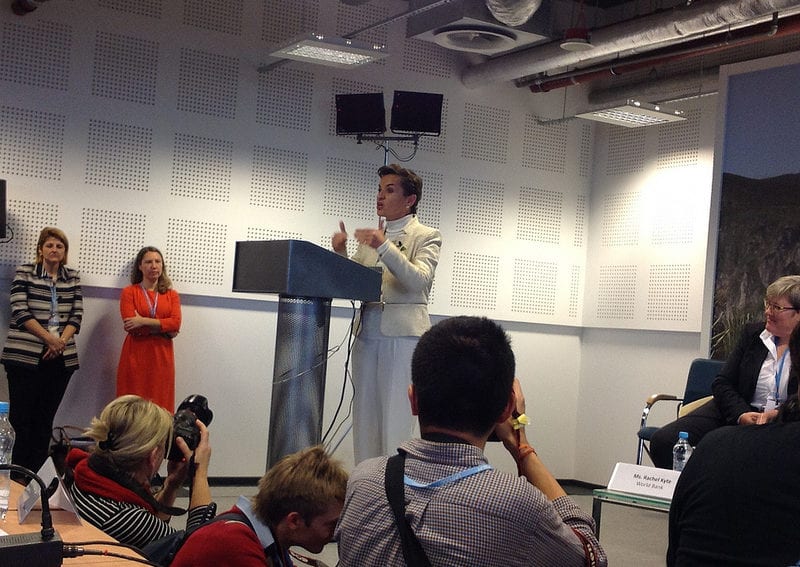By: Jan Piotrowski
Send to a friend
The details you provide on this page will not be used to send unsolicited email, and will not be sold to a 3rd party. See privacy policy.
[WARSAW] One of most significant topics being discussed at the UN climate change negotiations in Poland this week is whether climate agreement in 2015 should recognise the need to compensate and regenerate communities hit by climate change. A so-called loss-and-damage mechanism.
The prevalence of discussions on this issue shines a light on two important aspects of the climate change debate as we move towards a global agreement expected to be agreed in Paris in 2015.
Firstly, the proposal was the product of the world’s poorest nations speaking with a united voice. This can only be a positive step — a reflection of a growing sense of their right to bring industrialised nations to account and to participate as equals in the debate.
“Backing away from setting meaningful mitigation targets is a bit like a doctor treating only the symptoms and not the disease itself. This is palliative care for Earth.”
Jan Piotrowski
In her opening address at the UN Framework Convention on Climate Change’s 19th session of the Conference of the Parties (COP 19), Christiana Figueres, executive secretary of the framework convention, noted a building “groundswell” for climate action. There is no denying that this momentum exists, buoyed by developing nation advocacy.
But whether this dynamism is enough to realise a meaningful climate deal, as many (predominately) rich nations seem frozen in the inertia of struggling economies, is yet to be seen.
Secondly, the loss-and-damage mechanism taking the limelight seems to distract attention from the underlying issue of escalating greenhouse gas emissions as the driver of climate change.
Of course, holding discussions about what is needed to offset the current and future adverse effects of climate change is not only sensible but essential.
But to focus on this aspect while simultaneously backing away from setting meaningful mitigation targets is a bit like a doctor treating only the symptoms and not the disease itself. This is palliative care for Earth.
Japan’s announcement during COP 19 that it will be slashing its emissions targets, along with Australia’s attempts to repeal its carbon tax and the paucity of support for a second commitment period for the Kyoto Protocol at COP 18 last year in Doha, Qatar, are just a few examples of how mitigation efforts are slipping off the agenda.
The complexity of international treaties requires significant time and effort to hammer out the details, and so mitigation discussions may well yield significant results by 2015. But when politicians focus on how to make the best of a bad situation without making equally serious attempts to tackle the root cause, at best it feels misguided. At worst it feels like giving up.














